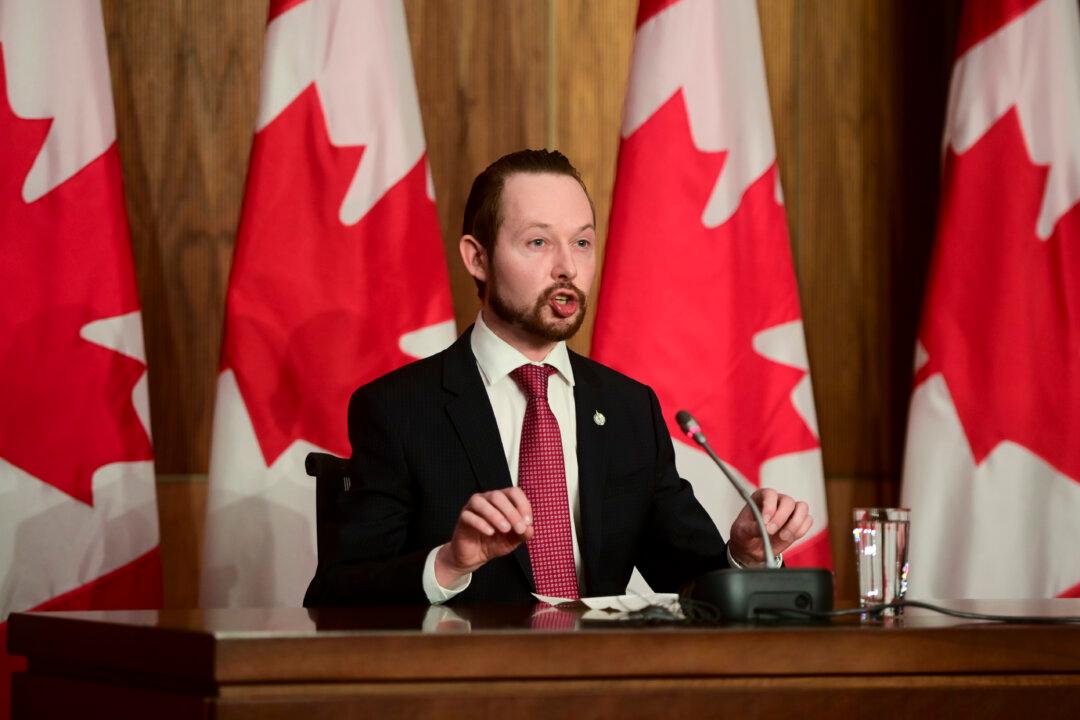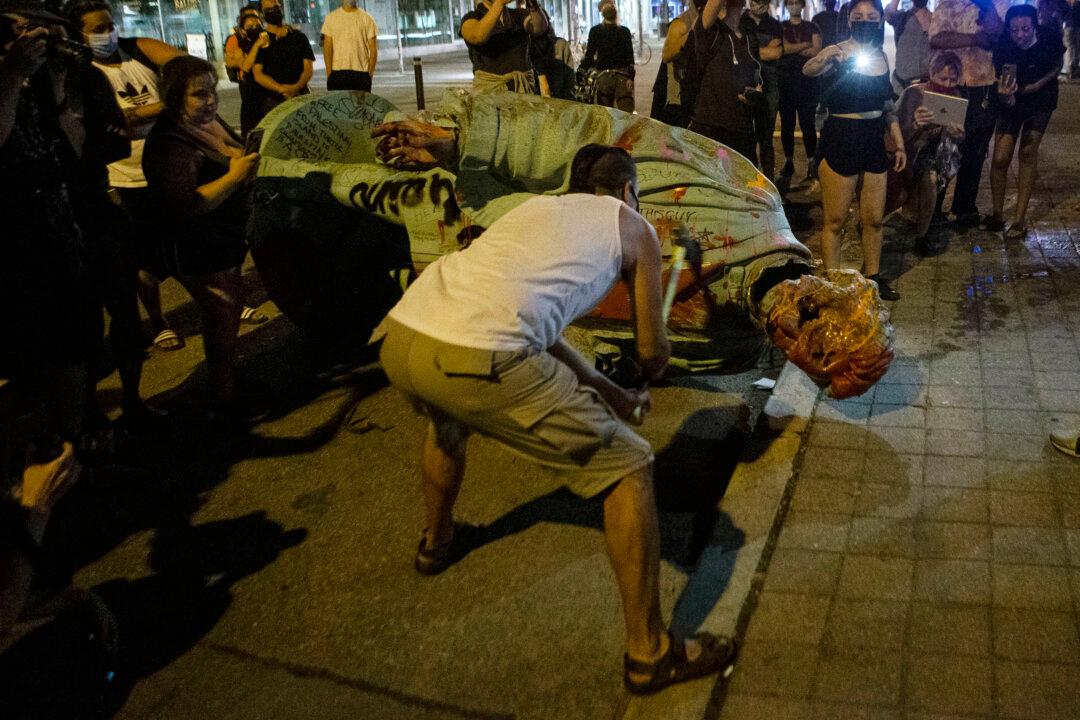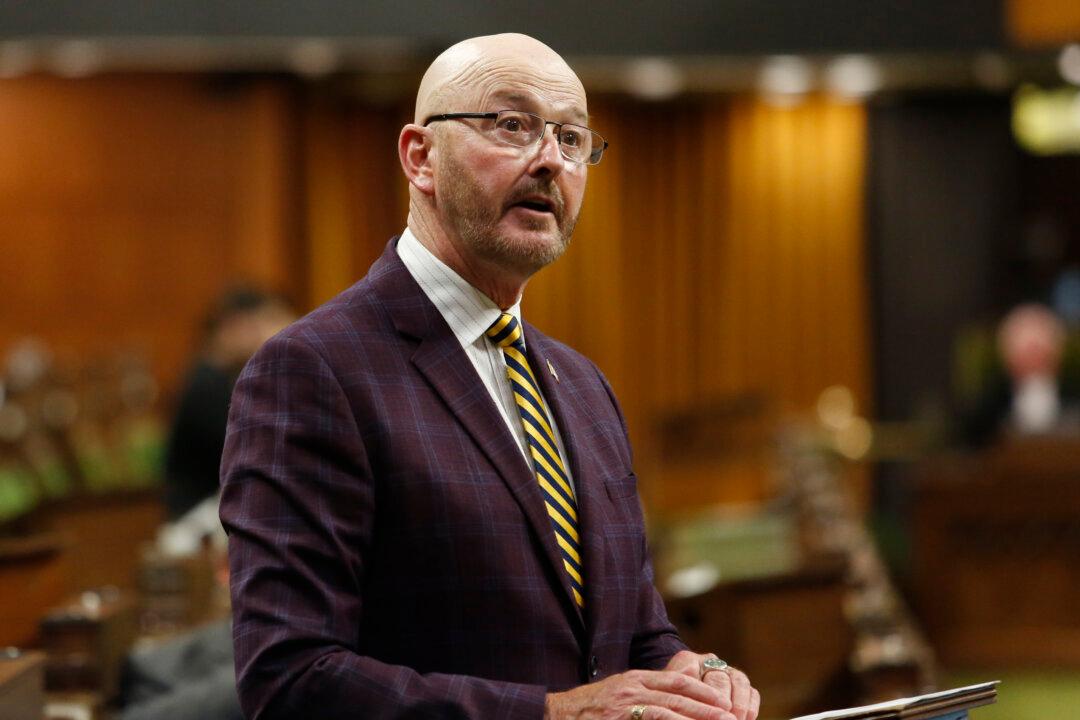When Shah Moayedi married the love of his life in Cuba in 2003, he thought it was going to last forever.
But a mere six weeks after his new wife arrived in Canada — shortly after receiving her permanent residence card — she left him, telling him to “get on with his life.”
“I felt betrayed, it was a devastating feeling. You feel violated,” says Maoyedi, adding that he knows of people who developed serious health problems or committed suicide after being suddenly deserted by their new spouse.
Moayedi is one of a growing number of Canadians who are finding themselves victims of marriage fraud.
Some ditch their newly-betrothed at the airport right after they arrive or, like Maoyedi’s wife, after receiving permanent residency. Some arrive in the country without even notifying their Canadian spouse.
To add insult to injury, in many cases the abandoned spouse is left not only with a broken heart but on the hook for thousands of dollars in sponsorship fees and other expenses.
While marriage fraud has many faces, the vast majority of cases involve a Canadian sponsoring a spouse from a foreign country, only to be betrayed by the new spouse when the time is right.
In marriages of convenience, both parties knowingly set out to defraud the immigration system whereas in marriage fraud only one person has that intent. In marriage fraud, it is not unusual for the sponsored person’s parents and extended family to be involved in the scam.
Many victims of marriage fraud say they never suspected they were being duped until after their spouse arrived in Canada and immediately began acting cold and distant.
After Moayedi’s experience, he helped co-found StopMarriageFraud.ca to raise awareness about marriage fraud which, he says, is a phenomenon that crosses ethnic and gender lines. However, many marriage fraud incidents involve the South Asian community.
As part of a larger effort to crack down on fraudulent marriages, Citizenship and Immigration Canada (CIC) has been deploying clandestine teams to foreign countries to investigate fake weddings.
After immigration officials noticed the same faces appearing in photos provided as evidence of “legitimate” marriages, an investigation uncovered an elaborate scam in which marriage-of-convenience syndicates were offering “marriage packages” that came complete with phony guests and documents.
“There are genuine concerns regarding the higher than average number of fraudulent marriage cases emanating out of known high fraud areas such as Vietnam, Cambodia and places where the credibility of supporting documentation is iffy,” says immigration lawyer and policy analyst Richard Kurland.
Kurland says that by taking this approach, CIC is using “street smarts” which will save money in the long run.
“Citizenship and Immigration Canada is engaged in the investigation of these cases, and Canadian officials at missions around the world constantly monitor for fraudulent activity,” says CIC spokesperson Danielle Norris.
CIC says sponsorship should not be taken lightly, and those involved are responsible for ensuring that their marriage is genuine. Even if the marriage fails, sponsors must support their spouse for three years.
If the spouse gets social assistance, sponsors have to reimburse the government for all benefits paid, even if the spouse bolts at the airport and the couple has never lived together as husband and wife.
Anti-marriage marriage fraud organizations say these rules are unfair because the victim usually has no control over the situation. In addition, there is no binding responsibility on the sponsored person.
Currently, new spouses are awarded unconditional permanent resident status as soon as they enter the country. Stop Marriage Fraud.ca and Canadians Against Marriage Fraud (CAIF) suggest that Canada adopt a similar approach to countries such as the United States and Australia, where foreign spouses must wait three years before they can become permanent residents.
If the marriage dissolved within that time the sponsored individual’s permanent residence status would be revoked and they would be deported to their country of origin.
The organizations and victims also want legislation in place that would protect Canadian sponsors, and complain that CIC takes little action to deport or penalize those guilty of marriage fraud.
Ontario resident Jeff Vanderhorst says he waited four years before asking his Cuban sweetheart to marry him because he’d heard “horror stories” about fraudulent marriages.
He made numerous trips to Cuba to get to know his intended, and eventually sponsored her to Canada as his fiancée under the stipulation that they were to be married within 90 days.
But after 17 days in the country Vanderhorst’s fiancée disappeared. She has since collected about $50,000 in welfare payments for which he’s liable, although he says he hasn’t been billed for it yet.
“She violated the terms of her admission into Canada and they still let her stay,” he says. “I’ve got all the proof in the world that she committed fraud, that she lied, but immigration doesn’t seem to be interested.”
Upset that she hasn’t been deported, Vanderhorst sued CIC in small claims court but the judge said he didn’t have the power to overturn the sponsorship agreement. He also sued his fiancée for the $8,000 he says she owes him.
Toronto-based CAIF is preparing to take CIC to court over its alleged failure to go after sponsored spouses who commit marriage fraud.
Jagpal Parmar, who traveled to India to get married in 2005, says his wife had another boyfriend all along and told him the day after she arrived in Canada that she loved the other man and didn’t intend to remain in the marriage.
The boyfriend is now trying to get a visitor’s visa to Canada in order to marry her, says Parmar, adding that he notified the Canada Border Services Agency (CBSA) of her sponsorship violations but she’s still in the country.
CIC’s Norris says when there is “sufficient information,” CIC and CBSA may start an investigation that could result in the loss of permanent resident status for the sponsored individual, adding that the department “takes all tips, complaints, and reports of alleged marriage of convenience seriously.”
Maoyedi and Vanderhorst claim that while there are laws are in place to deal with those who commit marriage fraud, they are not enforced.
“It just seems nobody’s held accountable by immigration,” says Vanderhorst. “I felt victimized by her and now I feel my government is doing the same thing.”
But a mere six weeks after his new wife arrived in Canada — shortly after receiving her permanent residence card — she left him, telling him to “get on with his life.”
“I felt betrayed, it was a devastating feeling. You feel violated,” says Maoyedi, adding that he knows of people who developed serious health problems or committed suicide after being suddenly deserted by their new spouse.
Moayedi is one of a growing number of Canadians who are finding themselves victims of marriage fraud.
Some ditch their newly-betrothed at the airport right after they arrive or, like Maoyedi’s wife, after receiving permanent residency. Some arrive in the country without even notifying their Canadian spouse.
To add insult to injury, in many cases the abandoned spouse is left not only with a broken heart but on the hook for thousands of dollars in sponsorship fees and other expenses.
While marriage fraud has many faces, the vast majority of cases involve a Canadian sponsoring a spouse from a foreign country, only to be betrayed by the new spouse when the time is right.
In marriages of convenience, both parties knowingly set out to defraud the immigration system whereas in marriage fraud only one person has that intent. In marriage fraud, it is not unusual for the sponsored person’s parents and extended family to be involved in the scam.
Many victims of marriage fraud say they never suspected they were being duped until after their spouse arrived in Canada and immediately began acting cold and distant.
After Moayedi’s experience, he helped co-found StopMarriageFraud.ca to raise awareness about marriage fraud which, he says, is a phenomenon that crosses ethnic and gender lines. However, many marriage fraud incidents involve the South Asian community.
As part of a larger effort to crack down on fraudulent marriages, Citizenship and Immigration Canada (CIC) has been deploying clandestine teams to foreign countries to investigate fake weddings.
After immigration officials noticed the same faces appearing in photos provided as evidence of “legitimate” marriages, an investigation uncovered an elaborate scam in which marriage-of-convenience syndicates were offering “marriage packages” that came complete with phony guests and documents.
“There are genuine concerns regarding the higher than average number of fraudulent marriage cases emanating out of known high fraud areas such as Vietnam, Cambodia and places where the credibility of supporting documentation is iffy,” says immigration lawyer and policy analyst Richard Kurland.
Kurland says that by taking this approach, CIC is using “street smarts” which will save money in the long run.
“Citizenship and Immigration Canada is engaged in the investigation of these cases, and Canadian officials at missions around the world constantly monitor for fraudulent activity,” says CIC spokesperson Danielle Norris.
CIC says sponsorship should not be taken lightly, and those involved are responsible for ensuring that their marriage is genuine. Even if the marriage fails, sponsors must support their spouse for three years.
If the spouse gets social assistance, sponsors have to reimburse the government for all benefits paid, even if the spouse bolts at the airport and the couple has never lived together as husband and wife.
Anti-marriage marriage fraud organizations say these rules are unfair because the victim usually has no control over the situation. In addition, there is no binding responsibility on the sponsored person.
Currently, new spouses are awarded unconditional permanent resident status as soon as they enter the country. Stop Marriage Fraud.ca and Canadians Against Marriage Fraud (CAIF) suggest that Canada adopt a similar approach to countries such as the United States and Australia, where foreign spouses must wait three years before they can become permanent residents.
If the marriage dissolved within that time the sponsored individual’s permanent residence status would be revoked and they would be deported to their country of origin.
The organizations and victims also want legislation in place that would protect Canadian sponsors, and complain that CIC takes little action to deport or penalize those guilty of marriage fraud.
Ontario resident Jeff Vanderhorst says he waited four years before asking his Cuban sweetheart to marry him because he’d heard “horror stories” about fraudulent marriages.
He made numerous trips to Cuba to get to know his intended, and eventually sponsored her to Canada as his fiancée under the stipulation that they were to be married within 90 days.
But after 17 days in the country Vanderhorst’s fiancée disappeared. She has since collected about $50,000 in welfare payments for which he’s liable, although he says he hasn’t been billed for it yet.
“She violated the terms of her admission into Canada and they still let her stay,” he says. “I’ve got all the proof in the world that she committed fraud, that she lied, but immigration doesn’t seem to be interested.”
Upset that she hasn’t been deported, Vanderhorst sued CIC in small claims court but the judge said he didn’t have the power to overturn the sponsorship agreement. He also sued his fiancée for the $8,000 he says she owes him.
Toronto-based CAIF is preparing to take CIC to court over its alleged failure to go after sponsored spouses who commit marriage fraud.
Jagpal Parmar, who traveled to India to get married in 2005, says his wife had another boyfriend all along and told him the day after she arrived in Canada that she loved the other man and didn’t intend to remain in the marriage.
The boyfriend is now trying to get a visitor’s visa to Canada in order to marry her, says Parmar, adding that he notified the Canada Border Services Agency (CBSA) of her sponsorship violations but she’s still in the country.
CIC’s Norris says when there is “sufficient information,” CIC and CBSA may start an investigation that could result in the loss of permanent resident status for the sponsored individual, adding that the department “takes all tips, complaints, and reports of alleged marriage of convenience seriously.”
Maoyedi and Vanderhorst claim that while there are laws are in place to deal with those who commit marriage fraud, they are not enforced.
“It just seems nobody’s held accountable by immigration,” says Vanderhorst. “I felt victimized by her and now I feel my government is doing the same thing.”







